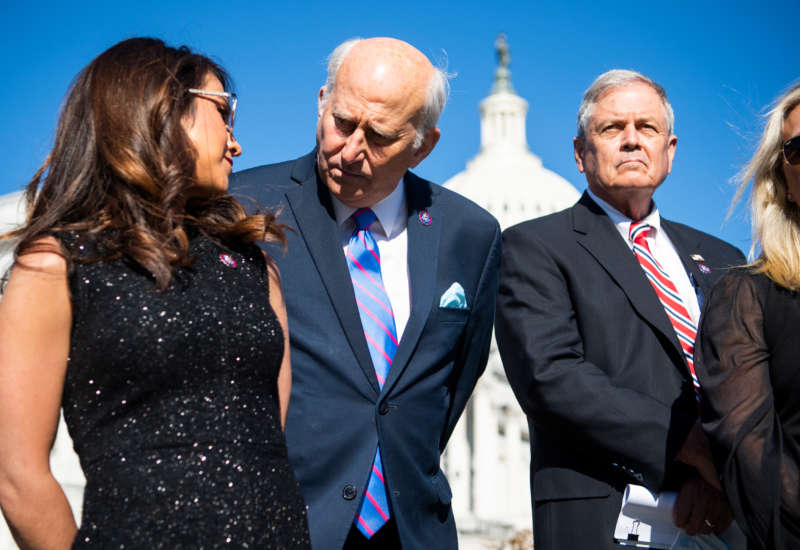

Sixteen Republican lawmakers — most of whom are members of the House Freedom Caucus — voted against a measure this week that would recognize locations where Japanese American internment camps were once operated as historical sites, and direct the National Parks Service to promote education about the country’s treatment of Japanese Americans during World War II.
The bill, which was sponsored by Rep. Jay Obernolte (R.California), received overwhelming bipartisan support. passed on Wednesday with the backing of 406 representatives in the House. Ten lawmakers didn’t vote, and 16 Republicans voted against the measure.
If the Senate passes the bill and President Joe Biden signs it into law, it will be effective immediately would establish a program known as the “Japanese American World War II History Network”Various locations across the country. It would also direct National Parks Service staff to oversee the program, in order to expand education opportunities about internment camps throughout the country.
Around 120,000 Japanese Americans were forced from their homes during World War II and taken to internment camps by a directive signed by President Franklin Roosevelt in February of 1942.
The Republicans who voted against the measure include Reps. Lauren Boebert (Colorado), Mo Brooks (Alabama), Louie Gohmert (Texas), Chip Roy (Texas) and Marjorie Taylor Greene (Georgia). While most of the lawmakers who voted in opposition to the bill did not publicly state why they were opposed, some stated that the federal government should not be responsible for rectifying historical wrongs or educating the public.
“Rep. Roy believes this matter should not be the responsibility of the federal government and that it would be best handled by private and charitable entities,” a spokesperson for the GOP lawmaker said.
Andy Harris, a Republican from Maryland, also voted against this bill. He said that Congress should be focusing on other issues such as the war in Ukraine, or gas prices. The bill was passed on the same day as the Japanese American internment bill. Harris voted in favor of another bill that would help preserve a different historical landmarkLouisiana, Eunice
The Republicans’ opposition to the bill comes amid a far right push to censor or ban lessons on race in K-12 classrooms across the country. In fact, some bans on the teaching Critical Race Theory have gone so far as to Forbidding all lessons on the history of racism in America..
In some places, such bans have included lessons or books that discuss the U.S.’s internment of Japanese Americans. One example is a Pennsylvania school district. placed a ban on a graphic novel written by actor George TakeiHe wrote about his childhood experiences in internment camps. This ban was lifted later. lifted after public outcry.
